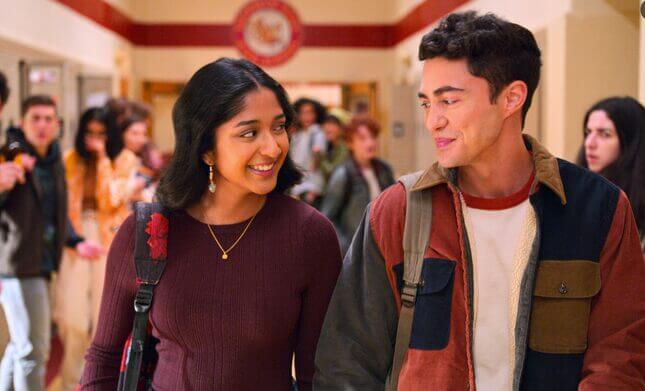‘Never Have I Ever’ Is Right—It’s Impossible to Date and Idealize Someone
If you're an adult who relates a little too well to angsty teen romance, you are unfortunately not alone.
EntertainmentTV

Embarrassingly enough, I am an adult woman who has always aggressively related to Devi Vishwakumar—the, err, quirky teen at the heart of Mindy Kaling’s Netflix hit Never Have I Ever, which launched its third season on Friday. Devi, you’ll recall, has treated audience members to such hits as almost hooking up with resident It Boy Paxton Hall-Yoshida, but bolting the moment he reveals his intimidating abs. She is routinely caught in chaotic situations of her own making—much of this, we learn over time through flashbacks, stems from the trauma of her father’s sudden death from a heart attack in her freshman year. The rest of it I can only assume stems from being a hormonal teen.
In any case, while some friends have informed me the young adult comedy is simply too cringe to be watchable, I’ve actually always embraced the cringe and savored the charming if not anxiety-inducing realness the show serves. Despite how Devi is steadily maturing over the course of the show, season 3 continues to deliver that simultaneously delightful and god-awful realness, particularly through Devi and Paxton’s short-lived second attempt at a relationship.
At the end of season 2, after initially expressing that he only wants to privately date Devi (who, you’ll recall, very publicly cheated on him at the beginning of the season), Paxton has a change of heart and the two rekindle their romance for all the school to see at the winter formal. The season ends panning on the couple kissing and dancing the night away, and by the first episode of season 3, “Daxton” is fully on. Considering how much build-up there was for this relationship, I was pretty surprised when the ship sunk by the end of the third episode—don’t get me wrong, I never pegged Daxton for being end-game. But I thought it would go the length of season 3 before Devi inevitably slipped down the classic Mindy Kaling enemies-to-lovers pipeline and made her way back to Ben.
-

-

-

-

-

-

-

-

-

-

-

-

-

-

-

-

-

-

-

-

-

-

-

-

-

-

-

-

-

-

-

-

-

-

-

-

-

-

-

-








































